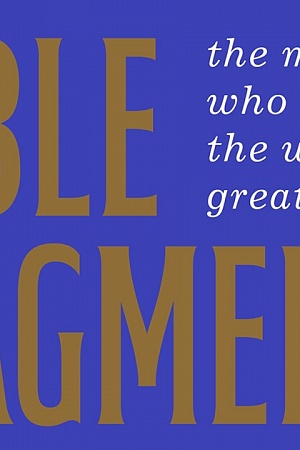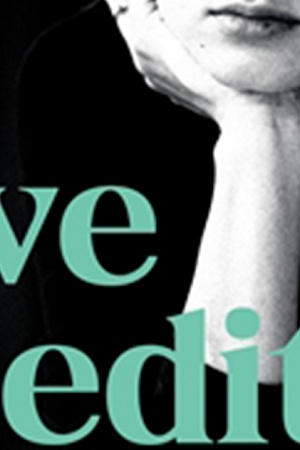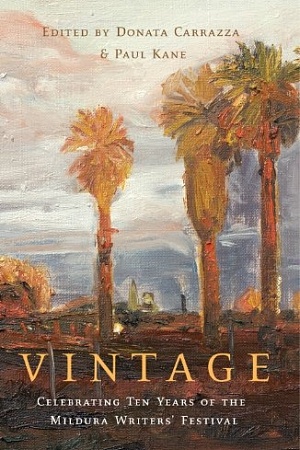Advances – October 2024
Jason Steger leaves Fairfax
Happy the media company that can afford to shed almost a hundred journalists without jeopardising the quality of its newspapers. That’s what Nine has done, with eighty-five journalists, many of them senior ones, taking up voluntary redundancies from The Age, The Sydney Morning Herald, and the Australian Financial Review. Among them were Jewel Topsfield, Royce Millar, Farrah Tomazin, Jack Latimore, Osman Faruqi, and Martin Boulton, as reported in the Guardian.
Much missed will be Jason Steger, who has for twenty-four years been literary editor of The Age and SMH – ‘the best job in journalism’, in his words. Jason has been the model of a literary editor: urbane, responsive, quick off the draw, and positively ubiquitous.
Nine’s loss is ABR’s gain. We look forward to publishing Jason’s own reviews, after he has taken a well-earned break.
Delivery blues
We were aghast to learn how long it took Australia Post to deliver the September issue to New South Wales subscribers. Some subscribers didn’t receive it until 12 September, despite the fact that we lodged the magazine with Australia Post on 29 August. Doubtless this is because of new efficiencies (those brutal economies). It should be noted that this laggard service comes after a twenty-five per cent increase in postage costs, which have done magazines of this kind no favours.
As we went to press, ABR received this Orwellian explanation from Australia Post: ‘NSW are experiencing some delays with our normal seasonal spikes and an outage on our Flat Sorting Machine which reduced processing capacity.’
We trust these delays will not be repeated. Henceforth we will always note on the imprint page the date when we lodged new issues with Australia Post (this month it was 26 September). It always helps our cause when subscribers, if they have time, notify us when they received new issues. Please drop Rosemary Blackney, the Business Manager, a line at This email address is being protected from spambots. You need JavaScript enabled to view it..
Don’t forget, print subscribers are entitled to full online access, including the current issue (always available on or before the first day of the month), facsimile editions, and our unique digital archive going back to 1978.
Publishing masterclass
Each year, Peter Rose and the other ABR editors lead a three-week publishing masterclass for PhD students at Monash University. The aim is simple: to introduce young scholars to the magazine, to acquaint them with what it has to offer freelancers and early-career scholars, and to encourage them to think about writing for magazines of this kind, taking their specialist knowledge and making it available in lucid form to general readers.
The outcomes, since the first of these series in 2018, have been consistently positive. Anders Villani is a salient example. He stood out in the 2020 class and promptly received a commission. Since then Anders, an exceptional young poet, has written for ABR on many occasions, critically and creatively. He was named our 2021 Rising Star, and he continues to help John Hawke and our Editor to select the poems that appear in our pages (Toby Davidson and Claire Gaskin being our October poets).
This year’s cohort (twenty-five PhD students from across the Faculty of Arts) was particularly impressive. We always offer at least two of the students paid commissions in ABR, based on the quality of their ‘assignments’ – a book review or a short commentary. This year we ended up offering commissions to six students. They are Jing (Jenny) Hu, Jonathan Ricketson, Kim Troxler, Jacky Watt, Arwen Verdnik, and Harrison Croft (who reviews a new book on page 57). We look forward to publishing them all in coming months.
The publishing masterclass, like the internship program that brings a dozen undergraduates to ABR’s office in Southbank throughout the year to give them an intensive entrée to publishing, is a key feature of the magazine’s partnership with Monash University’s Faculty of Arts, which goes back to 2016.
Julia da Costa
Will Hunt, ABR’s new Assistant Editor, came to us last year as one of those Monash interns (it’s been quite an ascent, but as our Editor has been known to say, ‘Just make yourself indispensable’). Will now designs our covers, and what a fine one he has produced this month. It features Julia da Costa, a citizen of Timor-Leste, photographed by Marcus Salvagno.
Born in the mid-1950s, in the village of Cainliu, Julia da Costa survived aerial bombings during the Indonesian invasion of East Timor, only to lose many members of her family, including her sole child, to the ensuing famine. Julia had no other biological children, but she has raised many orphans whose parents had died because of famine or privations; Julia’s selfless support enabled one of them to gain a BA in Indonesia.
Trained by her mother and grandmother, Julia is a master weaver of Tais; she has passed on these skills to younger generations of Timorese women and children. Weaving is integral to the preservation of East Timorese culture and identity.
Clinton Fernandes writes about East Timor, its memory, and Timorese weaving in his cover article (page 9).
As we go to print, an exhibition opens at Trinity College at Melbourne University, featuring rare and significant Timorese Tais. ‘Tais, Culture and Resilience: Woven stories from Timor-Leste’ marks the twenty-fifth anniversary of Timor’s independence and tells the story of the central role that women played in the independence struggle during Indonesia’s brutal occupation. As with Julia da Costa, every Tais tells a story, and together these Tais tell of an astonishing history and culture on our doorstep.
Get festive
While literary pages in our media shrink, literary festivals bloom. Could this suggest a thirst for cultural conversation? As Sebastian Smee notes in his Open Page interview on page 41, the literary festival is not nearly as common in the United States, while it seems to be a defining aspect of our literary culture. Advances has heard of three new festivals based in Carlton, Westernport, and Phillip Island, which together with the Queenscliff Literary Festival, celebrating its tenth year with speakers including Tim Winton, Alexis Wright, Pip Williams and Josh Bornstein, makes for a very stimulating Victorian literary circuit.









Leave a comment
If you are an ABR subscriber, you will need to sign in to post a comment.
If you have forgotten your sign in details, or if you receive an error message when trying to submit your comment, please email your comment (and the name of the article to which it relates) to ABR Comments. We will review your comment and, subject to approval, we will post it under your name.
Please note that all comments must be approved by ABR and comply with our Terms & Conditions.